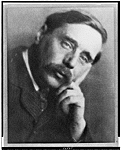Posted on February 21, 2002
Holy Smokescreen
Clone creators hide behind religion
by
Daniel Clark
When discussing most political matters, the news media generally treat religious beliefs as a disqualifying factor. Particularly with regard to right-to-life issues, the opinions of devoutly religious people are not welcome, because their involvement in shaping public policy would be seen as a violation of the "separation of church and state" that has been embellished from the First Amendment. The press billed last year's stem cell controversy, for example, as a dispute between religion and science, in their minds establishing opposition to embryonic stem cell research as nonfactual and politically illegitimate. How strange it is, then, to see a news magazine thrust religion into the center of the cloning debate.
The cover story of the Dec. 3rd issue of the U.S. News & World Report celebrates the cloning of human embryos at a laboratory called Advanced Cell Technology (ACT). The tone isn't surprising, since the obviously grateful author, Joannie Fischer, had been given exclusive media access to ACT's research for the previous eighteen months.

Fischer introduces us to Judson Somerville, a physician who lost the use of his legs in an accident, and is hoping that stem cells from cloned embryos might someday allow him to walk again. She tells us that he is an active Republican, and a campaign contributor to George W. Bush. He understands that his opinion on cloning conflicts with that of many other conservatives, she explains, "But he is also a devout Episcopalian." After consulting an Episcopal bishop, Dr. Somerville concluded that it would be ethical for him to allow ACT to clone embryos from his skin cells, because those embryos "are my cells being multiplied in a lab, not those of some other human being."
In agreement with that diagnosis is Dr. Michael West, the CEO of Advanced Cell Technology, who is also one of the scientists, along with Robert Lanza and Jose Cibelli, who has produced the first cloned human embryo known to the world. Fischer tells us that West also considers himself to be a conservative -- meaning, of course, that those of us who oppose human cloning must really be right-wing extremists. Religious faith figures prominently in the profile written on Dr. West as well. The biologist is said to have entered his field in order to prove creationism. He justifies his involvement in cloning and stem cell research by explaining that, "If God is about love and life, then we should do everything we can to end suffering and death."
Although the U.S. News story often reads like a puff piece (Teen magazines probably print more scathing articles about The Backstreet Boys), it is actually very shrewdly written. Anyone involved in the deliberate creation and destruction of human embryos would be perfectly aware that a condemnation from the pope was imminent. The presentation of religion as the catalyst for the project serves as a preemptive rebuttal, and an especially clever one, since it deals in beliefs, and not facts. As long as the debate is held on these grounds, relativism is certain to be the victor. The religious faith of one side leads it to one conclusion, while the other side has equally deep religious beliefs that cause it to conclude the opposite. So who's to judge?
Fischer suggests just such an outcome to her readers when she frames the question of when life begins as if it cannot possibly be objectively known. "Some religions say it begins at conception; some say after 40 days of development; others say at the 'quickening,' when fetal movement can be felt; and others say not until birth." Rather than examining what factual support exists for each of those beliefs, she simply lists them, leaving readers to draw an equivalence among the four. If we instead look at these positions more as arguments and less as articles of faith, we can easily see that they are far from equal.

Citing a particular stage of growth as the start of life is arbitrary in the first place, but setting a rigid boundary at forty days is less credible still, since it fails to take into account varying rates of development. Besides, the exact date of conception is often unknown, and when that is the case, nobody can detect whether a fetus is 39 or 40 or 41 days old. Surely, if it has just turned human, there ought to be some way to tell.
The quickening is not a logical starting point either, because a baby's existence is not dependent upon its mother's ability to perceive it. In past centuries, it might have been thought that the quickening was the moment when a baby sprang from lifelessness, but today we know better. A fetus starts moving its arms and legs as soon as they begin to develop. It can't be felt at that time because it is small enough to paddle around in its sac, without coming in direct contact with any part of its mother. From about six to eighteen weeks, it kicks against the uterine wall, which is insensitive. Only when it grows large enough to press against the abdominal wall are its movements felt by the mother, but no serious person could suggest that it didn't exist until that point for that reason.
That birth cannot be the very start of life should require no explanation. Suffice it to say that, when babies born in the seventh month often survive, to say that a nine month-old isn't a person just because it's still inside the mother is absurd.
We know from genetics that a new member of the human species comes into existence at the instant of conception. Unable to disprove that, Fischer dismisses it through religious nullification. If everything is taken on faith, then nothing is known for certain. Therefore, if the public accepts the proposition that all beliefs about the start of life are equally valid, the claims made in defense of ACT's cloning project will have been rendered impervious to evidence.
Paradoxically, nullifying the facts serves to enhance the expert status of the people involved in the cloning project. The value of expertise is diminished when the matters discussed are already commonly understood, because when everyone knows a statement is true, it doesn't make any difference who said it. The experts' stock rises as others become convinced that there is no known truth. If our understanding of the earliest stages of life is a matter of one belief verses another, whose belief are we going to trust ... our own, or those of Dr. West, who has a Ph.D. in biology?
ACT and its supporters appear supremely confident in others' trust in their expertise. If they didn't, they wouldn't make so many claims that are so blatantly false. Dr. West must have merely been testing the limits of his persuasive powers when he told Fischer that the cloned embryos he created were "not much different than sperm or eggs." That contention is easily refuted by any eighth-grade health textbook. Did he simply mean that newly formed embryos are like sperm because they're tiny, without bothering himself with annoying technicalities like chromosomes? Such deliberate imprecision has been the trademark of the pro-cloning campaign.

In a Nov. 25th interview on Meet the Press, West drew a distinction between "reproductive cloning," which would result in the birth of a cloned baby, and "therapeutic cloning," in which the cloned embryo is never implanted, but instead is destroyed so that its stem cells can be harvested. This terminology isn't really accurate, though, for a couple reasons. For one, "therapeutic cloning" isn't yet known to actually be therapeutic; its benefits are, for the time being, theoretical. On the other hand, cloning is a reproductive process by definition. When he and his cohorts say that their cloning is not reproductive, they only mean that they are going to destroy the clones early in their development, not to implant them with the intention of their being born. Then they accuse those who object to killing the pre-implantation embryos of being too stupid to understand the difference between "reproductive" and "therapeutic" cloning, as if it were even relevant.
West proceeded to describe "therapeutic cloning" to NBC's Tim Russert as a process that would "take a patient's cell back in time using the egg cell as a sort of a little time machine, and then make these cells that we've heard so much over the last few months, the embryonic stem cell, and make your own embryonic stem cell."
The way he puts it, one would think that a cloned embryo is really just a rejuvenated somatic cell. That must be the reasoning that has convinced Dr. Somerville that the clones being created in the ACT laboratory are just more cells of his own skin. Cleverly, Fischer characterizes this opinion as neither right nor wrong, but only Episcopalian. Any attempt to ban cloning may then be seen as religious intolerance, whereby one group imposes its beliefs on another. One of West's partners, Dr. Jose Cibelli, has picked up on this tactic. According to a Washington Post story, when asked to respond to arguments that liken the destruction of pre-implantation embryos to abortion, Cibelli said, "That's an extremely personal view."
The media have been content to play by ACT's ground rules. Any interviewers who have had any reservations about the pro-cloning argument have obediently kept their personal views to themselves. Even the tale of Dr. West and his wayback machine has gone unquestioned.
Contrary to West's bizarre claim, he did not transport a skin cell backward through time. What he did was remove the nucleus from that cell, and use it to artificially fertilize an egg, creating a live human embryo. That embryo was not itself a somatic cell, and Dr. West knows it, otherwise, he'd have seen no need to transfer the nucleus from the one to the other.

West has repeatedly asserted that a pre-implantation embryo is "not a human being" (spoken with a long "a"). By this, he does not mean that it's not human, only that it's not "a." It shouldn't be accorded the status of a person, he argues, because it has the potential to split into twins, so it doesn't have an individual identity.
All right, so this hypothetical embryo might at some point actually be two human beings, or possibly even as many as eight. One thing that is known for certain, though, is that it is definitely not no human beings, which is what would be required to equate it with disembodied skin tissue. Besides, twins are rare, so odds are that an embryo will remain the same individual being from conception until death. Moreover, when twinning does occur, that's the production of two embryos from one. What exists beforehand is indeed "a human being," for the simple reasons that it 's human, it's a living being, and there's one of it.
The idea that a human life's potential to become multiple human lives qualifies it for destruction is an exceptionally perverse argument. It makes sense only as part of a broader strategy to create the illusion of semi-humanity. This effort has been joined by a host of expert guests on network and cable news programs.
One of those is Joannie Fischer, who dutifully followed Dr. West on Meet the Press, where she explained that, "The embryos that we're talking about here, many scientists call pre-embryos." A pre-embryo is a fictitious creature, invented for the specific purpose of justifying the destruction of human embryos. An embryo exists from the instant of fertilization; it does not need to qualify through a probationary period. "Pre-embryo" is a completely unscientific term, but all Fischer needs is for some scientists to have said the word, and she can convince passive listeners that it's technically accurate.

Arthur Caplan, director of the University of Pennsylvania's Center for Bioethics, described a cloned embryo to CNN's Judy Woodruff as an "embryo-like thing" and "this kind of cellular thing." No wonder journalists don't dare challenge these experts' assertions, when confronted with intimidating technical jargon like that.
By denying the existence of objective truths, ACT and its supporters have assumed the power to redefine inconvenient facts away. If they fear that public disapproval of their research might manifest itself in a legislative ban, then they can "educate" the public by changing the facts. Hence, human embryos are not human beings, but only human stuff, no different from sperm, or from the skin taken from Dr. Somerville's leg.
West and Cibelli's colleague, Dr. Robert Lanza, carries this re-education through to its logical conclusion. "Research advances are making all cells 'embryonic,' but if you consider those cells a human life, then a hundred souls are lost every time I sneeze."
Notice that, in order to ridicule his opponents' viewpoints, he must append them to his own ridiculous premise. Dr. Lanza scoffs at the idea of elevating all human cells to the level where their existence would be considered sacred, a belief none of his project's critics has voiced in the first place. He and his fellow researchers see nothing outrageous, however, about promulgating the inverse: that human lives should be reduced to the moral equivalent of phlegm.
The Shinbone: The Frontier of the Free Press
Mailbag . Issue Index . Politimals